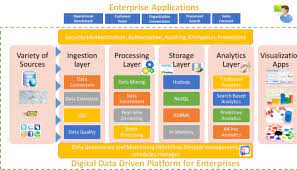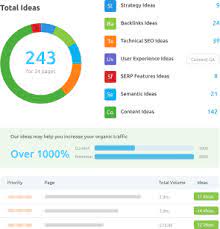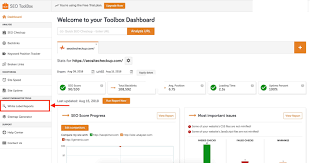The Power of Data Analytics in Digital Marketing
In today’s digital age, data analytics has revolutionised the way businesses approach marketing strategies. By leveraging the power of data, companies can gain valuable insights into consumer behaviour, preferences, and trends, allowing them to create targeted and personalised marketing campaigns that drive results.
Understanding Consumer Behaviour
Data analytics provides marketers with a deep understanding of consumer behaviour across various digital channels. By analysing data points such as website traffic, social media engagement, and email interactions, businesses can identify patterns and trends that help them tailor their marketing efforts to meet the specific needs and preferences of their target audience.
Personalised Marketing Campaigns
One of the key benefits of data analytics in digital marketing is the ability to create personalised campaigns that resonate with individual consumers. By segmenting audiences based on their demographics, interests, and past interactions with the brand, marketers can deliver highly targeted messages that are more likely to convert leads into customers.
Optimising Campaign Performance
Data analytics allows marketers to track and measure the performance of their campaigns in real-time. By monitoring key metrics such as click-through rates, conversion rates, and return on investment (ROI), businesses can quickly identify what is working well and what needs improvement. This data-driven approach enables marketers to make informed decisions that maximise the effectiveness of their marketing efforts.
Predictive Analysis for Future Success
With advanced data analytics tools, businesses can also harness the power of predictive analysis to forecast future trends and outcomes. By analysing historical data and identifying patterns, marketers can make strategic decisions that anticipate market changes and stay ahead of the competition.
Conclusion
Data analytics has become an indispensable tool for modern digital marketers looking to drive growth and achieve success in a competitive landscape. By harnessing the power of data-driven insights, businesses can create more targeted campaigns, optimise performance, and stay agile in an ever-evolving digital marketplace.
Exploring the Impact of Data Analytics on Digital Marketing: Key Benefits, Tools, and Predictive Insights
- How can data analytics improve digital marketing strategies?
- What are the key benefits of using data analytics in digital marketing?
- How does data analytics help in understanding consumer behaviour online?
- What tools and technologies are commonly used for data analytics in digital marketing?
- Can data analytics predict future trends and outcomes in digital marketing?
How can data analytics improve digital marketing strategies?
Data analytics plays a pivotal role in enhancing digital marketing strategies by providing valuable insights into consumer behaviour, preferences, and trends. By analysing data from various digital channels, businesses can gain a deeper understanding of their target audience and tailor marketing campaigns to meet specific needs effectively. Data analytics enables marketers to create personalised and targeted campaigns that resonate with individual consumers, leading to higher engagement and conversion rates. Moreover, by tracking key performance metrics in real-time, businesses can optimise their marketing efforts for maximum impact and ROI. Overall, data analytics empowers businesses to make informed decisions, predict future trends, and stay ahead of the competition in the dynamic landscape of digital marketing.
What are the key benefits of using data analytics in digital marketing?
Utilising data analytics in digital marketing offers a multitude of key benefits that can significantly enhance marketing strategies. By leveraging data analytics, businesses gain valuable insights into consumer behaviour, enabling them to create targeted and personalised campaigns that resonate with their target audience. The ability to track and measure campaign performance in real-time allows for quick adjustments and optimisations to maximise ROI. Furthermore, predictive analysis empowers marketers to anticipate future trends and make strategic decisions that keep them ahead of the competition. Overall, the key benefits of using data analytics in digital marketing include improved targeting, enhanced campaign performance, and the ability to adapt proactively to market changes for sustainable success.
How does data analytics help in understanding consumer behaviour online?
Data analytics plays a crucial role in understanding consumer behaviour online by providing valuable insights into the actions and preferences of online users. Through data analytics tools, businesses can track and analyse various metrics such as website traffic, click-through rates, social media interactions, and purchase history. By interpreting this data, marketers can identify patterns and trends that reveal how consumers engage with their brand online. This deeper understanding allows businesses to create more targeted and personalised marketing strategies that resonate with their target audience, ultimately leading to improved customer engagement and conversion rates in the digital realm.
What tools and technologies are commonly used for data analytics in digital marketing?
In the realm of data analytics in digital marketing, a variety of tools and technologies are commonly utilised to extract valuable insights and drive strategic decision-making. Some of the popular tools include Google Analytics for tracking website performance, social media analytics platforms like Hootsuite or Sprout Social for monitoring engagement metrics, email marketing tools such as Mailchimp or Constant Contact for analysing campaign effectiveness, and customer relationship management (CRM) systems like Salesforce or HubSpot for integrating and managing customer data. Additionally, data visualisation tools like Tableau or Power BI are often employed to create interactive and insightful reports that facilitate a deeper understanding of marketing data trends. By leveraging these tools effectively, marketers can enhance their campaigns, optimise performance, and ultimately achieve greater success in the digital landscape.
Can data analytics predict future trends and outcomes in digital marketing?
In the realm of digital marketing, a frequently asked question revolves around the capability of data analytics to predict future trends and outcomes. Data analytics plays a pivotal role in forecasting by leveraging historical data and identifying patterns that can indicate potential future developments. By employing advanced analytics tools, businesses can make informed decisions based on predictive analysis, allowing them to anticipate market shifts, consumer behaviour changes, and emerging trends. While data analytics cannot offer absolute certainty about the future, it provides valuable insights that empower marketers to adapt their strategies proactively and stay ahead in the dynamic landscape of digital marketing.






